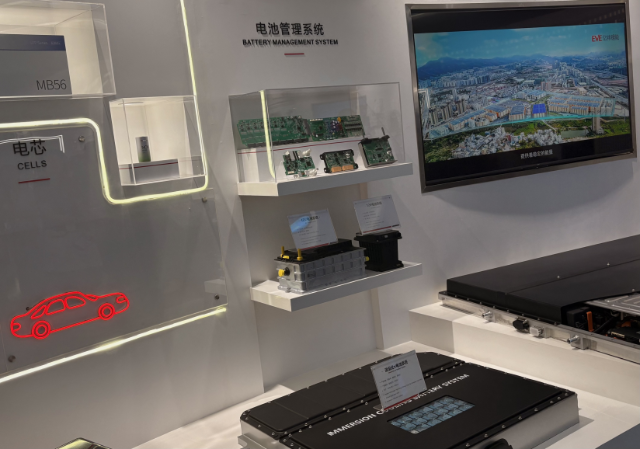
Battery equipment produced by EVE Energy in Huizhou, on June 27, 2025. (Photo: South)
Extreme weather events occur more frequently worldwide as flooding and droughts rage globally. All the catastrophes related to the climate crisis remind people that time is ticking.
From June 26 to 27, the Vibrant China Research Tour visited Huizhou, a city situated in the southeast of Guangdong Province. More critically, it functions as an energy base for the Guangdong–Hong Kong–Macao Greater Bay Area (GBA).
Members of the delegation, after a thorough tour of two local enterprises, were astonished to find such a city in Guangdong, China. They offer related products worldwide, seeking to provide solutions for global energy transformation.
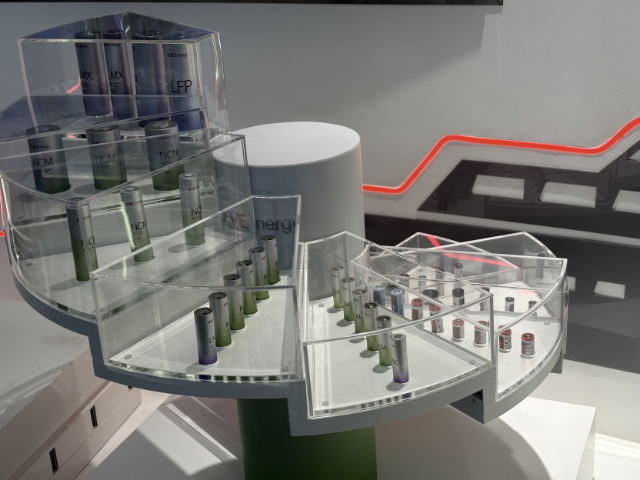
Batteries for electric vehicles produced by EVE Energy in Huizhou, on June 27, 2025. (South Photo)
Battery manufacturing as core of green energy transition
Batteries, as the core technology of the new energy transition, have been the focus for firms in Huizhou, the energy base for the GBA.
Lyric and EVE Energy, as the visiting firms of the tour, both possess a global layout of their production, R&D, and sales.
According to Lu Jiahong, co-founder and vice chairman of Lyric, the firm has deployed nine R&D centers and three manufacturing bases clustered in Europe, North America, and the Asia Pacific.
She detailed European production and R&D bases. In Germany, Lyric has R&D mainly in Hannover, the venue of the prestigious Hannover Industrial Fair. A few years ago, the firm acquired a factory from the renowned multinational enterprise Thyssenkrupp, previously in Poland. Lyric acquired it via business mergers and acquisitions. The two bases can resolve R&D, delivery, and after-sales service in Europe.
Correspondingly, EVE Energy currently has headquarters and production bases in Europe, Asia, and North America, with sales networks spanning 18 countries.
Jiang Min, vice president of the firm, unveiled that it has two lithium battery manufacturing bases under construction: one in Thailand for Southeast Asia and another in Hungary for Europe. The two plants will begin production by the end of 2025 and 2026, respectively.
Reasons behind the success
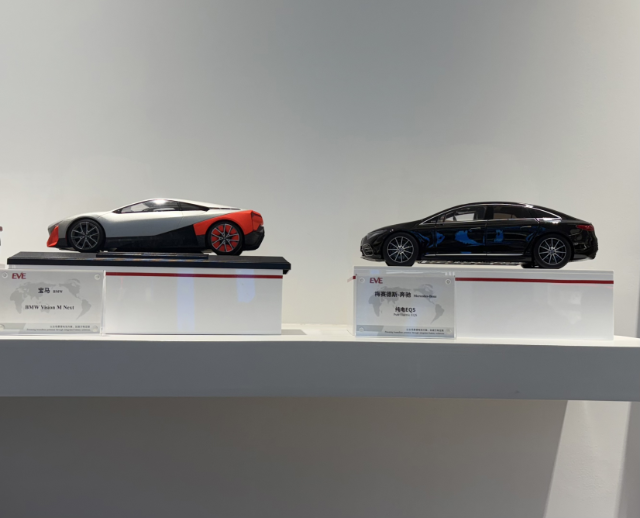
EV models, as gifts sent by BMW and Mercedes-Benz, contribute batteries produced by EVE Energy in Huizhou, on June 27, 2025. (Photo: South)
Since China announced its "dual carbon" goals in 2020, committing to peak carbon emissions before 2030 and achieve carbon neutrality before 2060, the country's dominance in new energy sectors has swelled globally, expanding its market share block by block.
EVE Energy exemplifies this process. After over two decades since its launch, EVE Energy has become a global lithium battery company, ranking second among global energy storage technology suppliers in 2024.
Jiang Min, vice president of EVE Energy, decoded the strategies behind its success.
First, the firm continues to increase related R&D to underpin cutting-edge technology research. Jiang noted that the research institute affiliated with EVE Energy conducts forward-looking research on cutting-edge products, application scenarios, and materials such as solid-state batteries.
Additionally, with more than ten partners from upstream to downstream, the company has built a global recycling system from resources to production to recycling and reuse, including green factories and lighthouse factories.
Promising battery products in the future
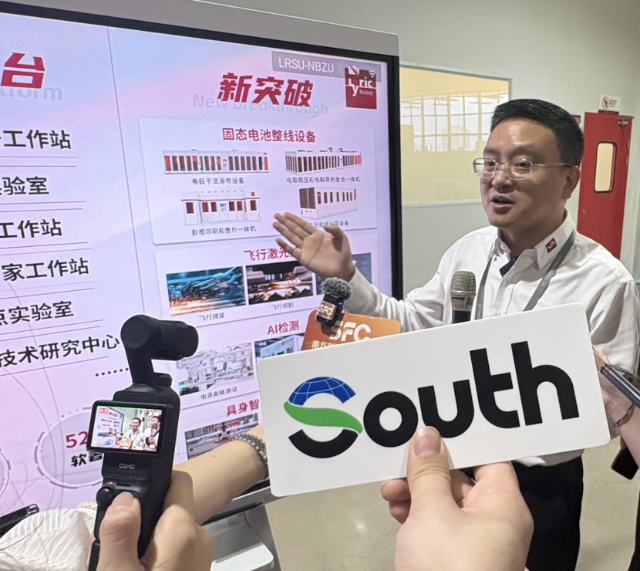
Du Yixian explains to reporters the solid-state batteries' features in Huizhou, on June 27, 2025. (Photo: South)
Currently, the most up-to-date industrial trend, as Du Yixian, dean of the research institute of Lyric, observes, is solid-state batteries. He explained to the journalists of the delegation that solid-state batteries outperform liquid ones due to two features: energy density and safety.
Solid-state batteries possess higher energy density than liquid batteries. The energy density of liquid batteries is roughly 250 Wh per kilogram, while solid-state batteries, especially all-solid-state batteries, can reach up to 500 Wh per kilogram. "At present, we require the long-life and large-capacity characteristics of solid-state batteries," he added.
As for safety, liquid batteries are prone to fire and explosion due to the high reactivity of the liquid electrolyte inside. Therefore, solid-state batteries have become a more certain direction for battery development.
Notably, according to Du, Europe and the United States are still at the laboratory research and development stage regarding all-solid-state batteries. China, along with Japan and South Korea, may take a step forward with this promising technology.
A mind change of new energy industry
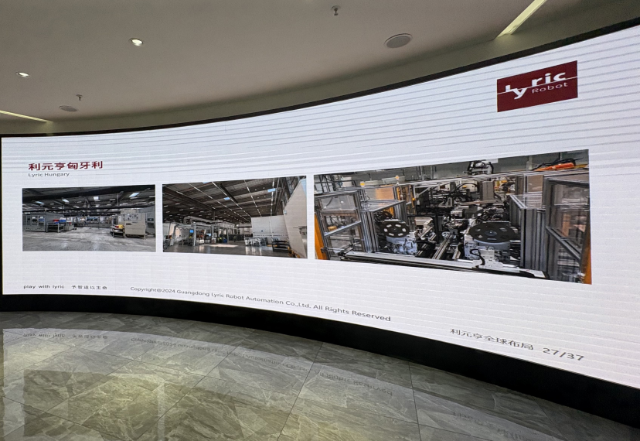
Hungry branch of Lyric illustrated by Lu Jiahong, co-founder of Lyric in Huizhou, on June 27, 2025. (Photo: South)
From fuel vehicles originating in Europe to electric vehicles thriving in China, Lu Jiahong, co-founder of Lyric, confessed that the equipment her firm delivered to Europe has changed many of Europe's perceptions of the new energy industry.
A few years ago, each time I visited my German or Polish branch, I saw very few new energy vehicles on the streets, but they have sprung up in recent years.
Moreover, with more Chinese automobile and battery equipment enterprises going overseas, "in a subtle way," she underscored, "we are all facilitating the transformation of the global new energy industry."
Reporter: Zhang Ruijun
Photo: Zhang Ruijun
Editor: Yuan Zixiang, James, Shen He






